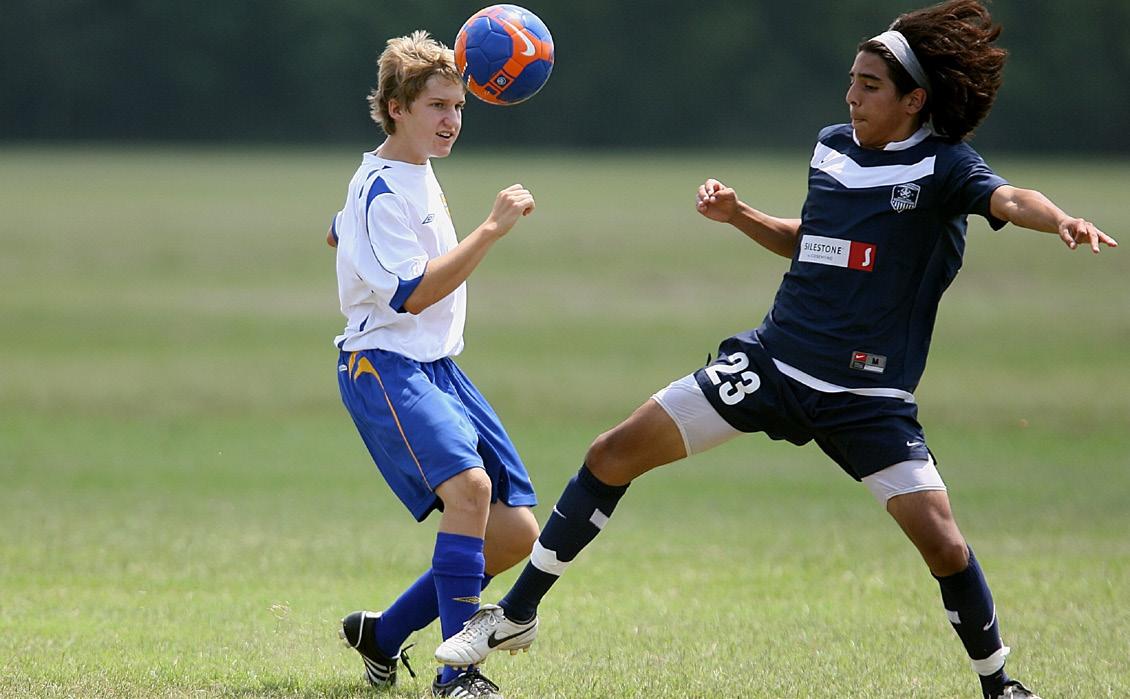
3 minute read
Suggestions for future research focuses
than the researcher. The www.GameChanger.nu knowledge platform created by Danish League and DBU can be a way to share the most important findings of the research project to a broader user group.
Cross disciplinary and impact-based research
Advertisement
Another key insight from the researcher workshop was that they found it inspiring and interesting to do future research across different research traditions:
"Co-create research across units to utilise the different skills of the units. In projects it could be a mix of quantitative data in relation to player performance together with ‘soft’ data of the player experiences." The researcher who made this quote highlights the possibility of working more closely between research units. By creating and developing research projects together, the units can explore each other's skills and expertise, creating a broader view on a given problem. A researcher describes how a project can be based on a specific case from a football club, and by interdisciplinary collaboration from different research units (e.g. for creating a better performance environment), the project will utilise the strengths of different research units. This interdisciplinary collaboration between research units also creates the opportunity for the researcher to broaden their network. The workshop in itself seems for the researchers to be an eye-opener to the opportunities hidden in their own organisation. “I love collaborating with people who see things differently, and they know some other methods and people who think something other than oneself.” In the model in Figure 7, we illustrate the cross-disciplinary options by the circle in the centre, while the triangles illustrate the ongoing potential collaboration opportunities in research projects. Furthermore, researchers were perfectly aware of researcher-student collaboration, and forming these teams they know is perceived as a tremendous resource for potential collaborating partners:
"It is enormously rewarding to see that some of our students from the Esbjerg study programme are out in the clubs, and this provides close collaboration with the clubs. They experience the challenge that the most important thing for the clubs is to win, and they want an answer to a question, and it is a challenge to find methods where we cannot control quite as much as when we control it in a laboratory."
Suggestions for future research focuses
An interesting aspect that was identified during the workshop was the need for research solutions that empower the end-user to analyse and interpret self-generated data, and through this approach to push research knowledge closer to the daily practice of football, at elite levels, but also at grassroots and NGO levels. That should be possible by creating tools through which the end-user can influence and create the future.
The challenges most researchers face is often of practical character, such as coordination calendars and finding shared time for developing new concepts. It is therefore of great importance to match expectations in order to succeed with cross-sectional research projects. We also identified:
“Schools have limited budgets, which makes external funding necessary.” We found that clubs like results to be kept secret, though aligning badly with the research funding system that aims for the common good. Researchers are very keen to develop and ask the innovations centre to support developing Special Interest Groups (SIGs), in which new collaborative projects can evolve. We did saw a wealth of project ideas among the research such as:
“Develop focused online free-standing learning modules (ILOs) that can be offered to individuals working in the world of high-performance athletic practice, so that they can complete them at their own time and pace.” We also saw limited suggestions for NGO and grassroots focused football research projects, and many projects focusing on elite performance.








